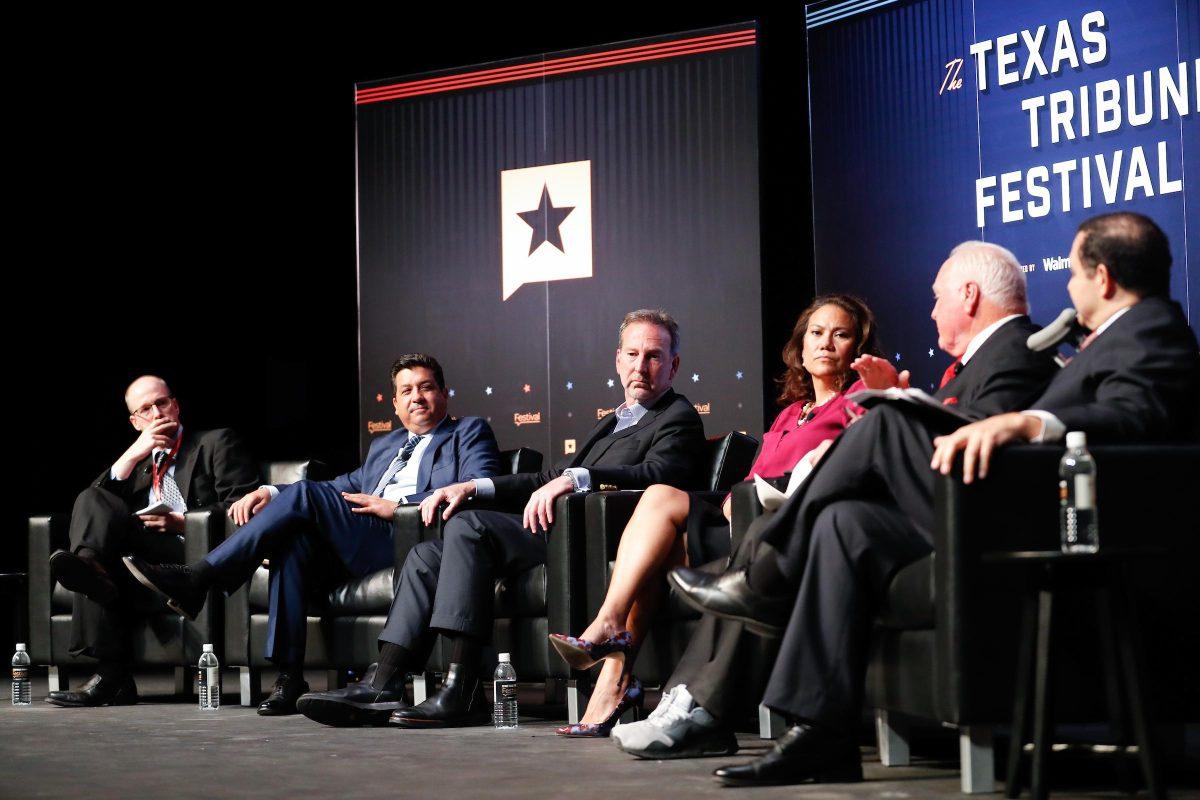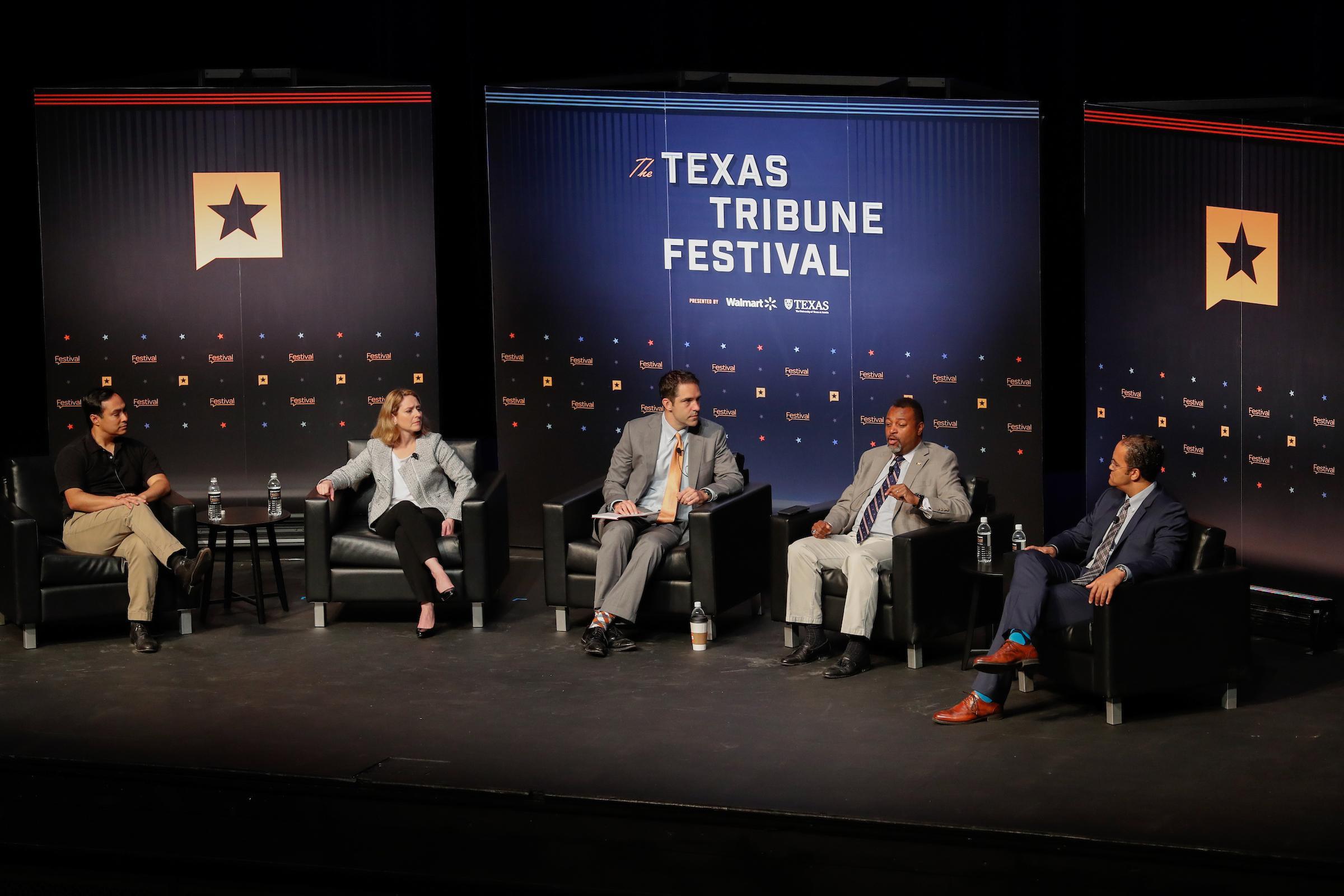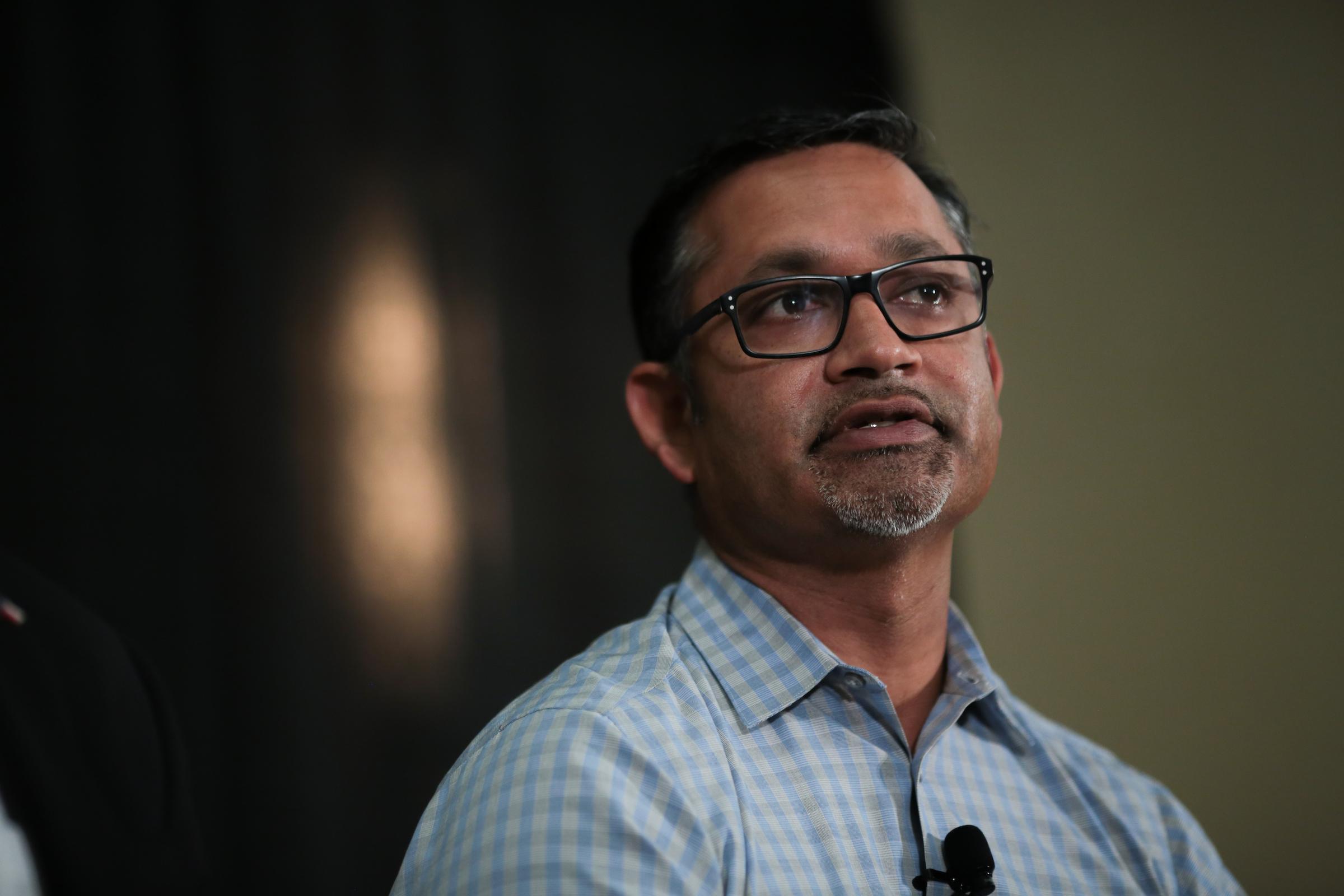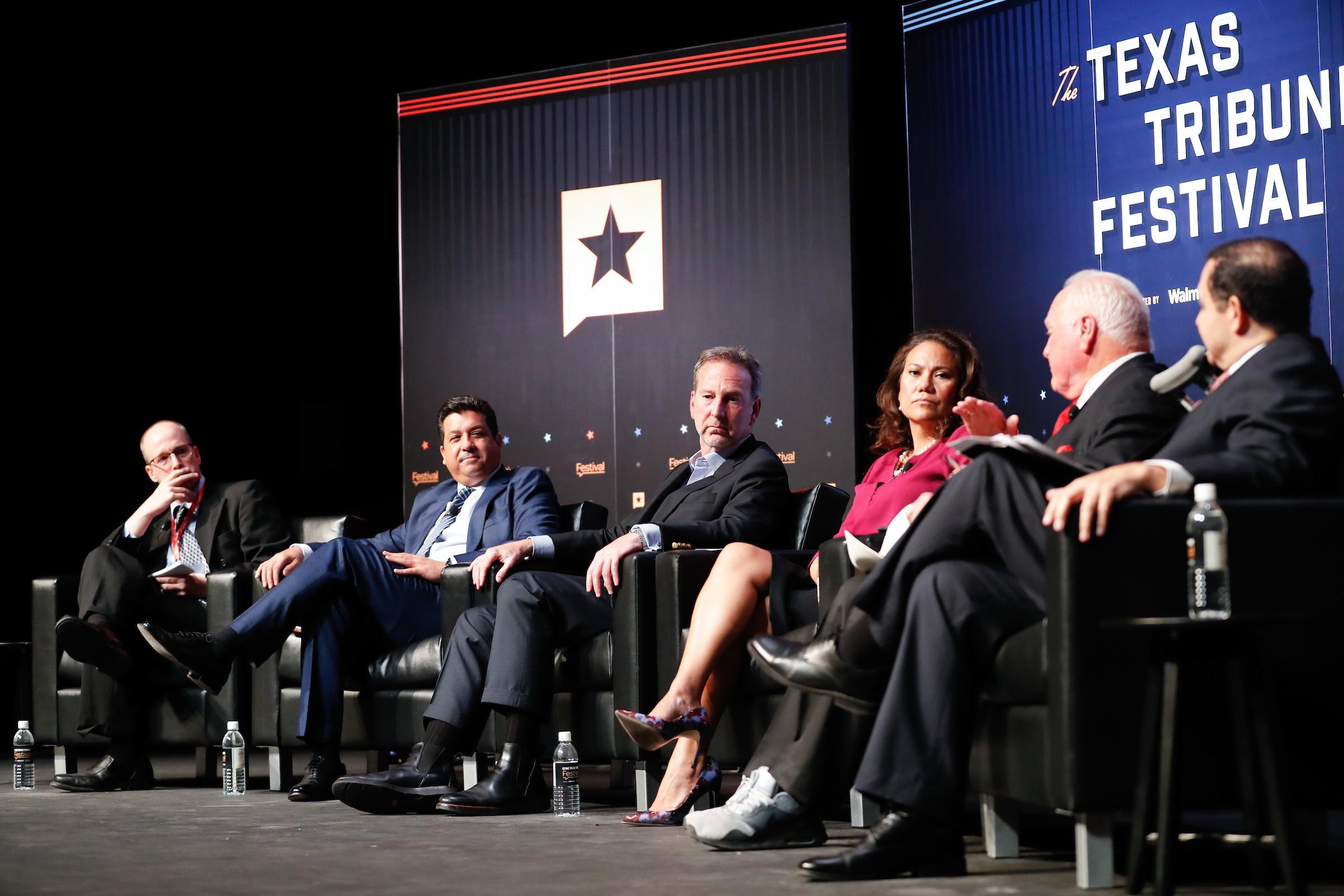While recognizing the disarray surrounding domestic policy decisions, the 2017 Texas Tribune Festival also considered an equally uncertain future regarding America’s place in the world.
Story by Zoya Zia
Photos courtesy of The Texas Tribune
Last Monday, the Senate backed a bill to allocate $700 billion into the military. One of the 89 senators who voted for the bill, Al Franken, spoke at the festival but did not mention the bill. However, by backing the bill, politicians prioritized their financial commitment to the military.
The same money that will be used to address American foreign policy concerns could provide free and accessible college education and healthcare to the public. As a result, understanding the complex relationships between the United States and other countries is key to learning how the federal government determines its budget and what concerns shape these major decisions.
At the Texas Tribune Festival, several panelists gave their perspectives on President Donald Trump’s evolving attitudes towards countries around the world, including North Korea, Russia and Mexico. Coming from different backgrounds and political standpoints, panelists offered the audiences insight into a world that seems to change day after day, from one minute to the next.
Here are some of the highlights from three relevant sessions.
Trump and National Security
Although professor Robert Chesney started the panel with a joke about Trump’s comments on protests in the National Football League, the conversation on national security quickly became serious. The conversation included commentary from Dr. Kathleen Hicks, senior vice president of the Center for Strategic and International Studies, Malcolm Nance, executive director of the Terror Asymmetric Project and U.S. representatives Joaquin Castro and Will Hurd.
From left to right, Rep. Joaquin Castro, Dr. Kathleen Hicks, Professor Robert Chesney, Malcolm Nance and Rep. Will Hurd speak on national security.
According to most of the panelists, tensions with North Korea present a complex situation. Castro argued for increased sanctions against the country but added that Trump needs to take the fight off of Twitter. “I don’t think it’s getting us anywhere,” Castro says. “The best course of action is a diplomatic one.” Hicks underscored Castro’s point about Twitter and said that the “manliness show” between the leaders of the United States and North Korea is not worth it.
As the world of politics merges with social media, Nance warned the audience of the real consequences of “trolling,” or the game of words that puts human lives at risk. Given his military background, he recognizes the real consequences of war. “The use of nuclear weapons is off the table. Every president since Truman has understood that these are not toys,” Nance says.
While admitting that tweets are not policy, Hurd argued the government has made great strides by working with China and Russia to “be tough with the tough guy and nice with the nice guys.” However, he mentioned that cybersecurity and voter fraud are bipartisan issues. As the panel attempted to define cyberterrorism, they agreed that coding and computer science classes need to be made available for more students. It still remains questionable how much money out of the new $700 billion defense budget will be allocated to teach coding in schools across the country.
Texas and the Refugee Crisis
Ali Noorani discusses the importance of welcoming refugees.
Leading a conversation about refugees and their place in America, editor of The Texas Tribune, Ayan Mittra prompted the panelists to share views on security. Ali Noorani, executive director of the National Immigration Forum, Jackson County sheriff A.J. Louderback, Mustafa Tameez, managing director at Outreach Strategists, Jo Anne Lyon, ambassador of the Wesleyan Church and former foreign service officer Jessica Vaughan contributed to the dialogue.
Noorani started by mentioning the travel ban, which was replaced by a new ban on Sunday. He noted that while it is within the right of the state to vet immigrants, cities with refugee populations become safer over time and American values should be balanced with security threats. However, Louderback maintained that resources need to protect Americans. Adding another issue, Tameez said a threat to national security comes from homegrown terrorism in which individuals feel marginalized by an “us versus them” mindset.
For Vaughan, the topic does not go that far. She argued that the Trump administration has “improved the vetting system” to prevent refugees from “taking advantage of the system and supporting terrorism.” Still, Lyon said refugees can assimilate into society and develop strong relationships. On a similar note, Noorani said refugees bring growth and vitality to many cities.
As Vaughan and Louderback called for refugees to resettle closer to their home countries and Tameez said the country should welcome refugees to prevent future terrorism, it seems that providing a helping hand is conditional. Far from being an “American value,” allowing refugees to create a new life in the U.S. is largely judged based on their ability to contribute economically.
Trump and Mexico
Jay Root, reporter for The Texas Tribune, went straight to the point when introducing the panel as “Trump versus Mexico.” U.S. representative Henry Cuellar was joined by Texas Agriculture Commissioner Sid Miller, El Paso County judge Veronica Escobar, former U.S. ambassador to Mexico Antonio Garza and Francisco Cabeza de Vaca, governor of Tamaulipas in Mexico.
From left to right, reporter Jay Root, Gov. Francisco Cabeza de Vaca, former ambassador Antonio Garza, Texas Agriculture Commissioner Sid Miller and Rep. Henry Cuellar discuss the relationship between the U.S. and Mexico.
Beginning with a discussion on trade relations and NAFTA, Cuellar pointed out how vital trade is between the United States and Mexico. While agreeing with this point, Miller praised Trump for his efforts to change NAFTA and make it better for “both sides.” It was well-understood that the U.S.-Mexico partnership has to continue to grow and develop, reacting to change as needed.
In the chaos of Trump’s racist rhetoric about Mexico, those affected by trade relations are often left out of the conversation. Escobar recalled a story of women fighting for their labor rights in Ciudad Juarez after being fired. Speaking with passion, Escobar said countries should “never benefit from other’s misery” but they should create better labor conditions. She added that “immigration and trade go hand in hand, and human rights need to keep up with this trade.”
Analyzing these topics with his diplomatic background, Garza said he thinks it is important to recognize how the relationship with Mexico can improve lives on both sides of the border. In agreement, de Vaca provided insight on relations between the two countries. Referencing his own experiences governing Tamaulipas, he argued that the United States and Mexico need to work together, maintain the competitiveness of regional trade and fully modernize NAFTA.
When the wall was mentioned, several panelists rejected the idea on practical, ethical and financial grounds. Escobar called the wall offensive while de Vaca said he does not believe in walls since he prefers to build bridges.
As the discussion ended, one thing was obvious. Administrations in D.C. and Mexico City will remain connected. Their bond will continue to affect lives, especially as the U.S. government makes more decisions on how to allocate its budget surrounding defense and foreign relations.














































